detail profile goliarda sapienza

Info Pribadi
Peran Yang Di Mainkan Goliarda Sapienza
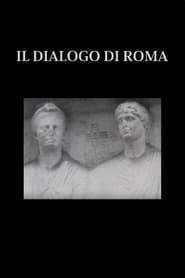 The subject of this film is...
The subject of this film is...Roman Dialogue 1983
'The subject of this film is the conversation between a man and a woman. A couple, maybe lovers, maybe married, it doesn't matter. (...) During this conversation, we do not see but the city of Rome. I wanted to transmit that what Rome provokes in me, the feeling of an intrinsic matter, indissoluble, in difference with Paris, made of small parks and open spaces, crossed by the sky and the wind. Hand in hand with the film, the difficulty of the two lovers assumes a clearer, more explicit form. But as much as, in my opinion, it is impossible to describe and film Rome, the difficulty in the love of a couple can never be totally understood.' - Marguerite Duras, Venice film festival catalogue, 1982.
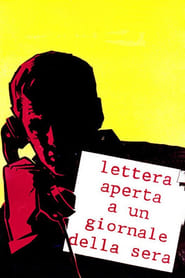 Hoping to shake up the complacent...
Hoping to shake up the complacent...Open Letter to the Evening News 1970
Hoping to shake up the complacent Italian Communist Party, a group of leftist radicals sends an incendiary letter to a major evening newspaper declaring their intention to volunteer to fight American troops in Vietnam as a political statement against the war.
 A group of rich young intellectuals...
A group of rich young intellectuals...Abandoned 1955
A group of rich young intellectuals hiding from the war in rural Italy play at being partisans when some disbanded soldiers and some refugees ask them for shelter in their villa. The young and aristocratic Andrea strikes up a friendship with a peasant girl, Lucia. Then the Germans suddenly appear, looking for the real partisans, and the time comes for serious decisions.
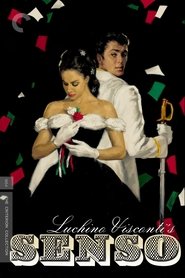 A troubled and neurotic Italian Countess...
A troubled and neurotic Italian Countess...Senso 1954
A troubled and neurotic Italian Countess betrays her entire country for a self-destructive love affair with an Austrian Lieutenant.
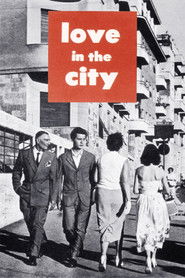 Six vignettes explore love and desire...
Six vignettes explore love and desire...Love in the City 1953
Six vignettes explore love and desire in Rome, from prostitution and heartache to unwed motherhood and the male gaze.
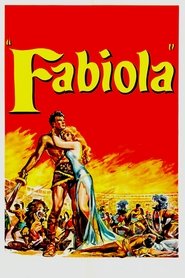 In ancient Rome a love story...
In ancient Rome a love story...Fabiola 1949
In ancient Rome a love story blossoms between Fabiola, daughter of a senator, and Rhual, a Gallic gladiator. After Fabiola's father is killed, the Romans blame the Christians and the persecution begins. Rhual confesses to being a Christian, is accused of the murder and sentenced to fight to the death in the arena.
 A struggling model concocts a story...
A struggling model concocts a story...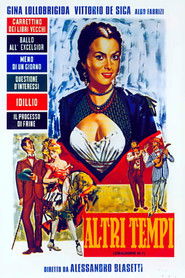 A number of different segments taken...
A number of different segments taken...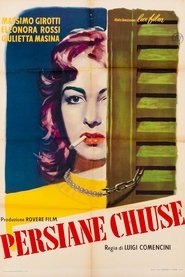 Sandra searches her missing sister For...
Sandra searches her missing sister For...